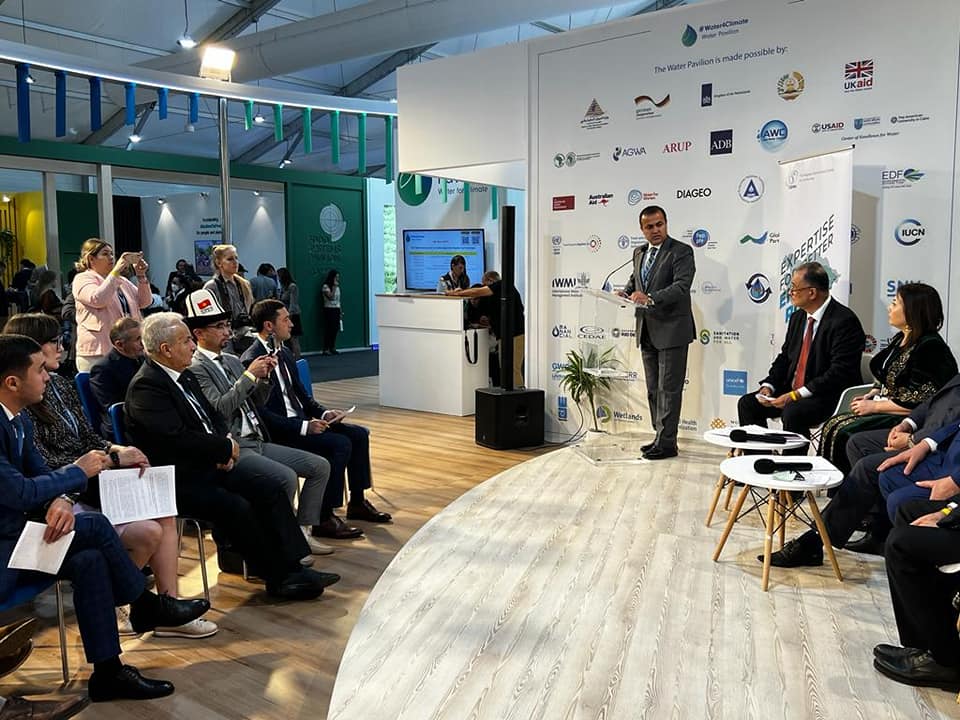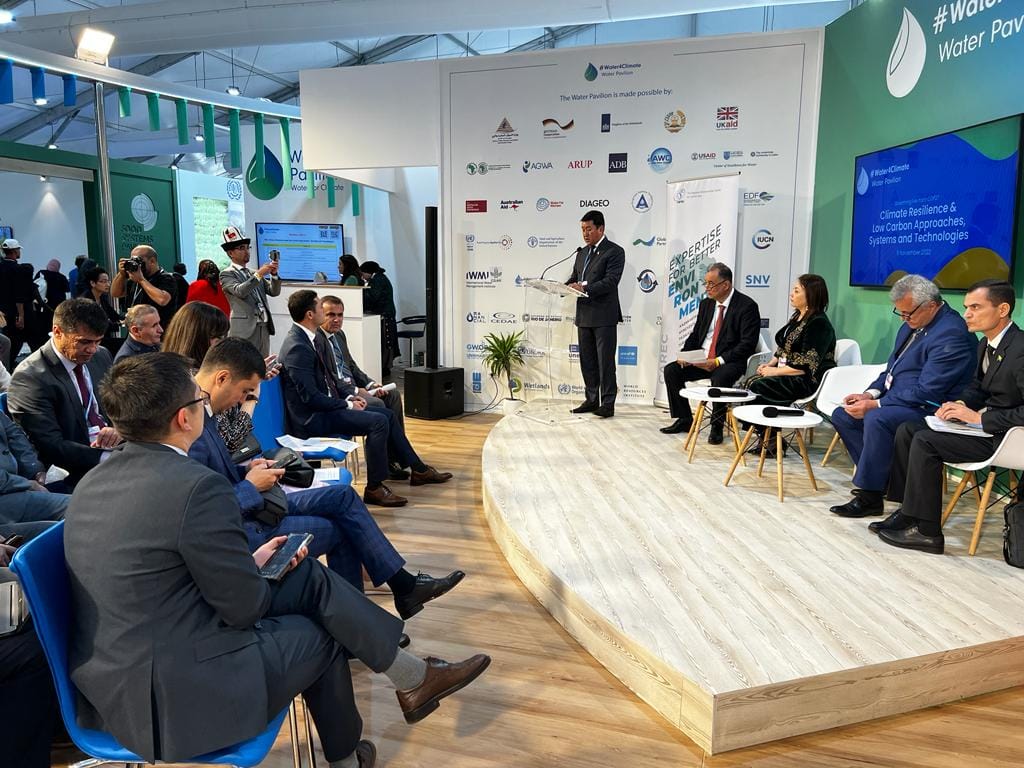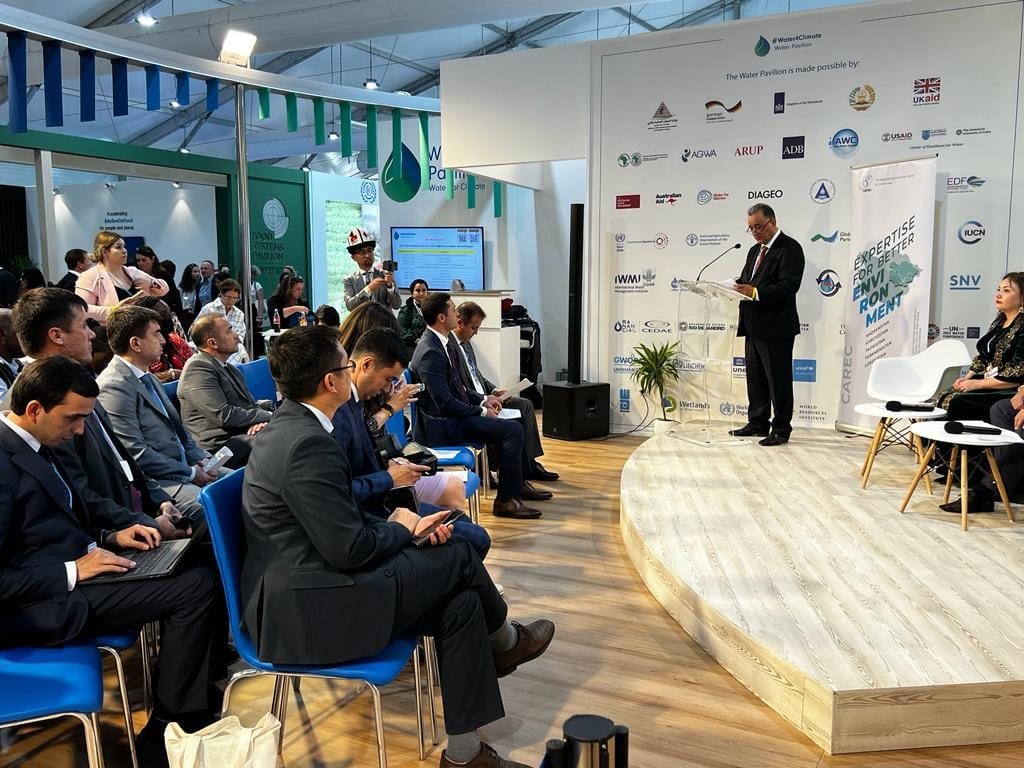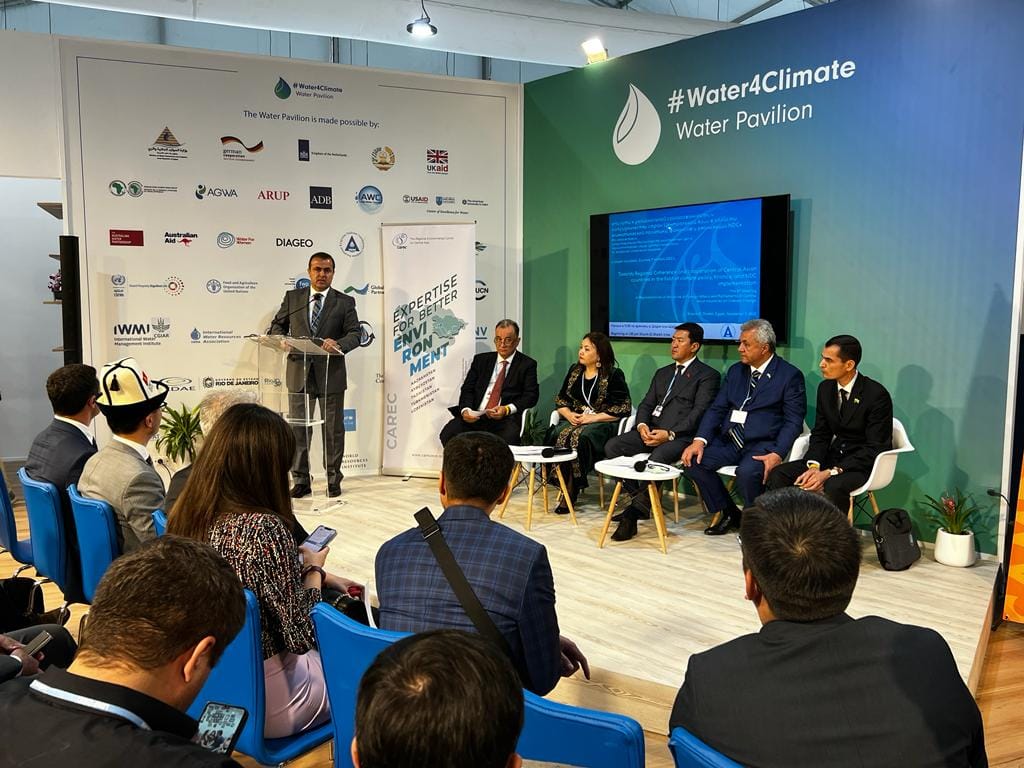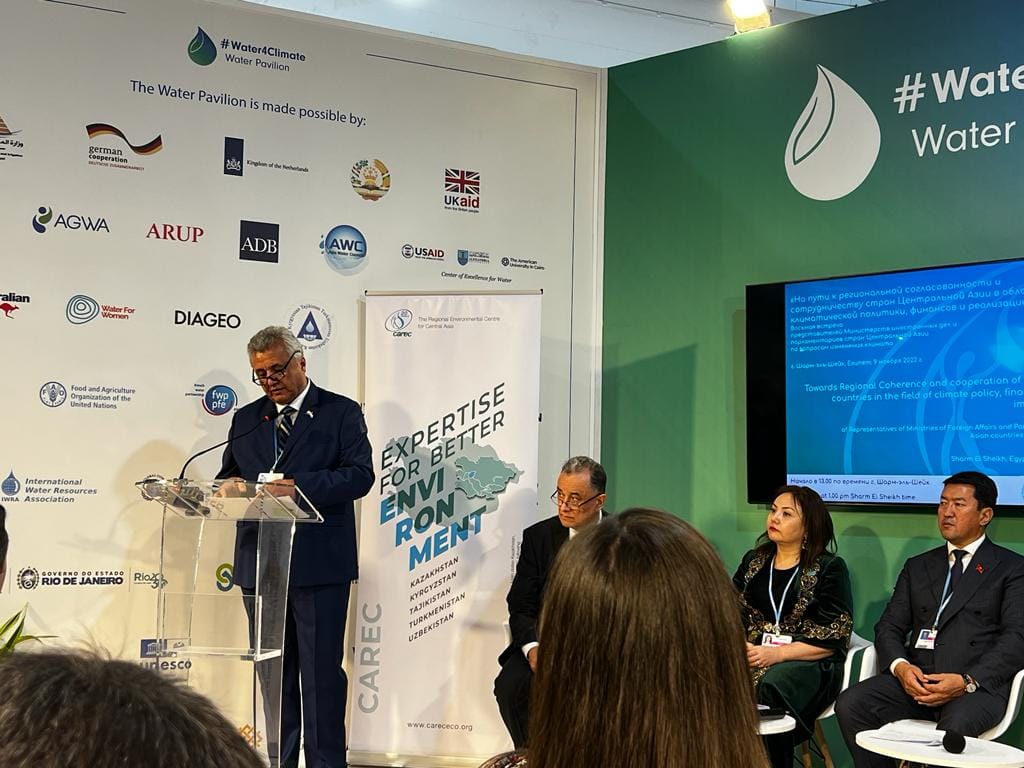On 9 November 2022, within the framework of COP27 in Sharm el-Sheikh, the Arab Republic of Egypt, the Eighth meeting of representatives of the ministries of foreign affairs and parliamentarians of the countries of Central Asia was held: “On the way to regional coherence and cooperation of countries Central Asia in Climate Policy, Finance and Implementation of Nationally Determined Contributions (NDCs)”.
The meeting was organized by the Regional Environmental Centre for Central Asia jointly with the Executive Committee of IFAS and consisted of two parts. In the first part of the session, which was held in the Pavilion of the Republic of Tajikistan, the coherence of regional climate goals and initiatives, water-climate links in the relevant policies and strategies of the Central Asian countries, the need for coordinated mobilization of climate finance, as well as progress in the implementation of NDCs, including activities for improvement of legislation, institutional framework and implementation of climate policy in the five countries of the region.
The second part of the meeting was held in the Water Pavilion, within which the main achievements of the countries of Central Asia on the way to carbon neutrality and climate adaptation within the framework of the NDCs were discussed.At the end of the session, the Regional Statement of the governments of the Central Asian countries was announced. The regional statement of the governments outlines the common concerns that are relevant to all five CA countries in relation to climate change and a shared understanding of the steps needed for both mitigation and adaptation.
The Chairman of the Executive Committee of IFAS Mr. Sulton Rahimzoda and the Executive Director of CAREC summed up the results of the session. They called on the governments of the countries of the region and development partners to closely cooperate in the implementation of the ASBP-4, as well as to support the efforts of the Central Asian states to combat climate change, including through climate finance, increasing the capacity of state and public organizations and transferring innovative approaches and technologies and development of regional dialogue platforms and digital information and analytical platforms to enhance cooperation.
